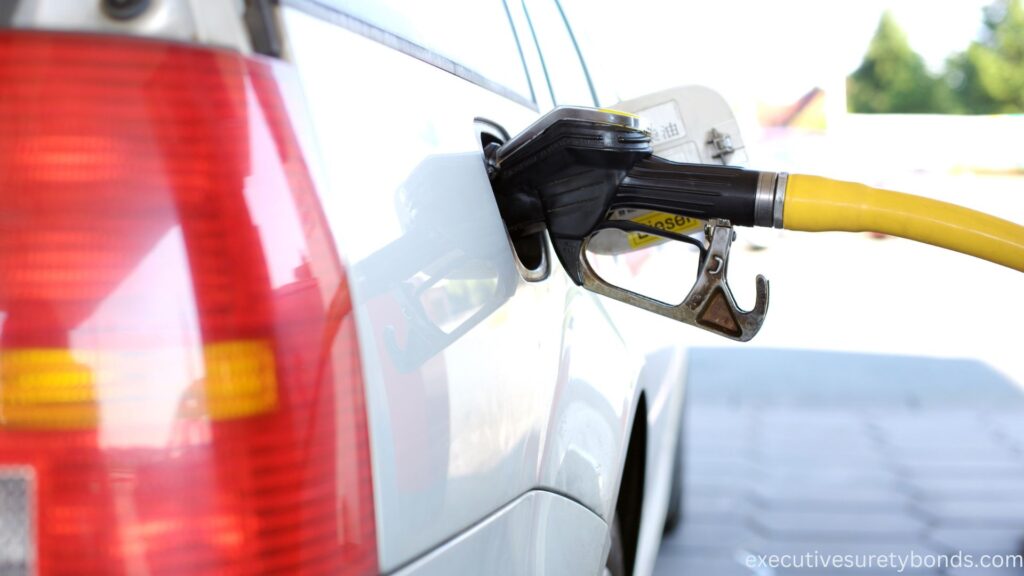Introduction
Have you ever wondered how Louisiana keeps its roads in good shape or builds new highways? Well, a significant part of the answer lies in the Louisiana Motor Fuels Tax. Each time you fill up your vehicle’s gas tank, a portion of what you pay goes into this tax fund. But to ensure that the tax is collected fairly and accurately, there’s something called the Distributor Bond. In this article, we’ll dive into what the Louisiana Motor Fuels Tax is, why it’s essential, and how the Distributor Bond plays a unique role in this process.
Understanding the Louisiana Motor Fuels Tax
The Louisiana Motor Fuels Tax is a tax on motor fuels like gasoline and diesel. It’s a tax applied to each gallon of fuel sold in the state. The revenue generated from this tax is crucial for funding road construction, maintenance, and various other transportation-related projects.
What is a Distributor Bond?
The Distributor Bond is a financial guarantee required by the Louisiana Department of Revenue from fuel distributors. Fuel distributors are businesses responsible for distributing motor fuels to retail locations like gas stations and convenience stores.
Why is it Required?
The requirement for a Distributor Bond serves several critical purposes:
- Tax Collection: It ensures that fuel distributors correctly report and pay the Motor Fuels Tax to the state. This tax revenue is essential for funding road projects and maintaining our state’s transportation infrastructure.
- Fair Competition: The bond levels the playing field among fuel distributors by holding them accountable for their tax obligations. This helps prevent unfair advantages due to tax evasion.
- Regulatory Compliance: Fuel distributors must adhere to state laws and regulations regarding fuel distribution and taxation. If they fail to do so, the bond can be used to cover fines and penalties.
How Does it Affect Distributors and Drivers?
The presence of the Distributor Bond mainly affects fuel distributors:
- Distributors: Distributors must obtain and maintain this bond as part of their legal obligations. It represents a financial commitment to ensure they comply with tax regulations and distribute fuel responsibly.
- Drivers: Drivers indirectly benefit from the funds generated through the Motor Fuels Tax, as it contributes to maintaining and improving the quality of Louisiana’s roads and highways, making travel safer and more efficient.
Conclusion
In conclusion, the Louisiana Motor Fuels Tax and the Distributor Bond are critical components of Louisiana’s transportation infrastructure funding system. The next time you fill up your tank, remember that a portion of what you pay goes into keeping our roads in good condition. The Distributor Bond ensures that fuel distributors handle fuel transactions ethically and fairly, benefiting both consumers and the state. So, the next time you hit the road in Louisiana, know that these financial mechanisms are at work behind the scenes to keep our journeys smooth and our infrastructure strong.
Frequently Asked Questions
Can fuel distributors in Louisiana choose to obtain a single Distributor Bond that covers multiple types of motor fuels, or is a separate bond required for each type of fuel, such as gasoline, diesel, or alternative fuels like propane or natural gas?
In Louisiana, fuel distributors may be required to obtain separate Distributor Bonds for different types of motor fuels, such as gasoline, diesel, or alternative fuels. The bonding requirements are typically specific to the type of fuel distributed and the associated tax regulations. Distributors should consult with the Louisiana Department of Revenue to understand the precise bonding requirements for each type of fuel they distribute.
What measures are in place to ensure that fuel distributors use the revenue collected through the Motor Fuels Tax for its intended purpose of funding transportation infrastructure, and how is transparency and accountability maintained in this process?
The Louisiana Department of Revenue, along with state and local authorities, monitors the collection and allocation of revenue from the Motor Fuels Tax. Accountability and transparency are maintained through financial audits, reporting requirements, and strict adherence to tax regulations. The collected revenue is typically dedicated to transportation-related projects, and any misuse or misallocation would be subject to investigation and penalties.
Are there any specific provisions or incentives for fuel distributors in Louisiana who consistently demonstrate exemplary compliance with tax regulations, such as reduced bonding requirements or preferential treatment in the event of minor tax discrepancies?
In Louisiana, bonding requirements for fuel distributors are generally determined based on regulatory standards rather than individual compliance records. While exemplary compliance with tax regulations is encouraged and essential, it does not typically result in reduced bonding requirements or preferential treatment in the event of minor tax discrepancies. Distributors are expected to meet the standard bonding requirements set by the state to ensure fair and consistent tax collection and compliance across the industry.

